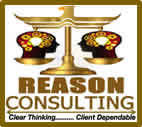Who Should Attend? Those who want to understand change, learn how to adapt to it and potentially become change leaders.
Objective: By the end of the course, you will learn how to manage and cope with change and how to help those around you too.
Topics:
Accept there are no normal or abnormal ways of reacting to change, but that we ust start from where we are.
See change not as something to be feared and resisted but as an essential element of the world to be accepted.
Understand that adapting to change is not technical but attitudinal. Change is not an intellectual issue but one that strikes at who you are.
Recognize that before we can embrace the way things will be, we must go through a process of letting go of the way things used to be.
See change as an opportunity for self-motivation and innovation.
Identify strategies for helping change be accepted and implemented in the workplace.
Length: One day
CHANGE MANAGEMENT: CHANGE AND HOW TO DEAL WITH IT
AMPLIFIED AGENDA
Course Overview
This session previews the course. You will have an opportunity to identify your personal learning objectives. Plus, you will be asked to give two examples of change that have happened to you in the last six months. Select one change that was positive and one change that you wish you had handled better.
What is Change? Basics of change, including definitions and examples.
The Change Cycle: The three phases of William Bridges’ change cycle: beginnings, endings and transitions.
The Human Reaction to Change with Exercise: Daryl Conner’s interpretation of the human response to change.
The Pace of Change with a Case Study: Different people react to change in different ways and at different times.
Dealing with Resistance: Resistance is examined as well as how to overcome it to make change stick.
Adapting to Change with Case Study and Exercise: Become resilient to change.
Strategies for Dealing with Anger: Change often makes us feel angry. Dealing with anger and the anger of others.
Managing Stress: Change can also bring about stress. Stress management tips and relaxation techniques discussed.
Personal Plan of Action: Begin your personal action plan for becoming more resilient when dealing with change.


